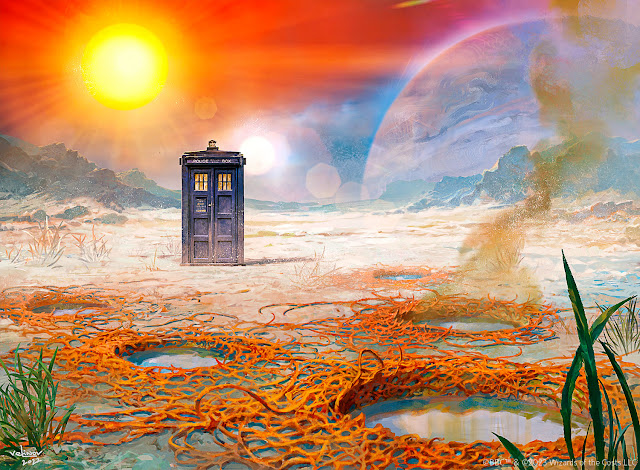The Pursuit of History / Casualties of Time [AUDIO/2016.7.13 ~ 8.10]
★★☆☆☆
The greatest crime of any Dr. Who is being boring. The unambitious, the rote and formulaic -- like fanfiction, except without the clumsy charm and thrill. I think by now, after having listened to so many of his stories, I know what to expect from a Nicholas Briggs story. I would certainly love to be more thrilled and surprised by his work, but the fact of the matter is that I find him way too comfortable and unambitious most of the time. I'm not saying he's a terrible writer -- far from it, he's written incredible Who such as the Lucie Miller two-parter and Creatures of Beauty -- but he's a very "stick to the formula" kind of writer that churns out some of the most unimpressive Who I've ever listened to. The Conglomerate is a fascinating corner of the Who mythos, a self-sustaining corporation that spans all of time and space, and its inception had a lot of gravitas (particularly in its Audio Visuals days). Here, they've all but completely lost their charm and intrigue, becoming a rather dull villainous force held together by sticky tape, the late great David Warner and a prayer. Cuthbert is an interesting villain, perhaps a bit overqualified for a story of this mediocre calibre, and in the end he turns out to be a lackey for the Black Guardian who becomes a good capitalist boss after the climax.
At this point in their career (in both Big Finish and in their acting lives in general), Tom Baker and Lalla Ward need to be given something truly special to make their performances sparkle. They're by no means bad here -- far from it, they're positively silky in their ease in slipping into their roles -- but one can clearly tell they're anything but challenged by the material. There have been so many Fourth Doctor Adventures audio dramas where the climax involves the Doctor and his companion separated, with one following the villain and the other working alongside a gurgly-voiced alien race... and this isn't even the best one. The Pursuit of History two-parter is the definition of 'been there, done that'; nothing special at all to separate it from the crowd, and a two-hour runtime that's squandered because nothing very interesting happens between the beginning and end. I've heard some people compare this to the works of Douglas Adams and I'm sorry, but I have to laugh. Briggs simply refuses to take a promising concept and run with it towards any remotely interesting direction -- and that's the exact opposite of the imaginative comic gold of Adams' works.





Comments
Post a Comment